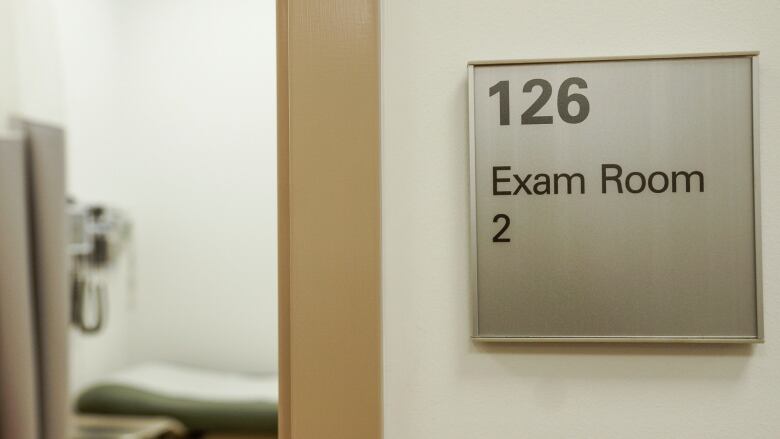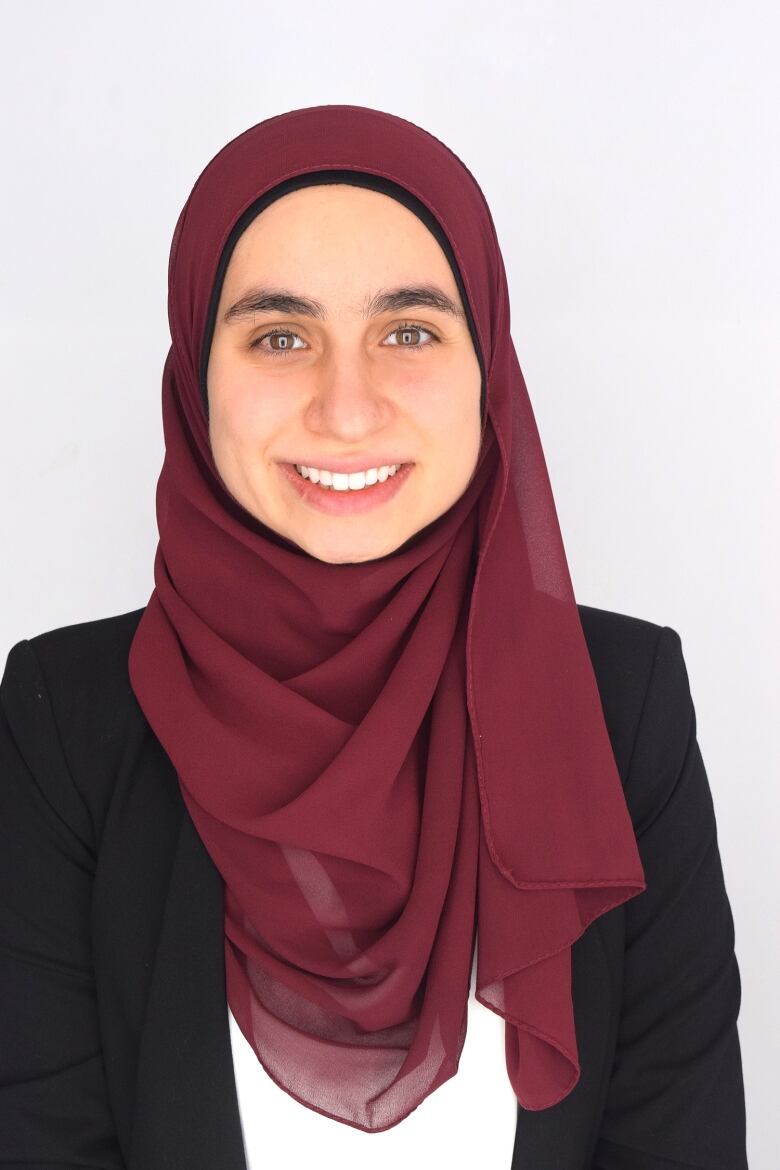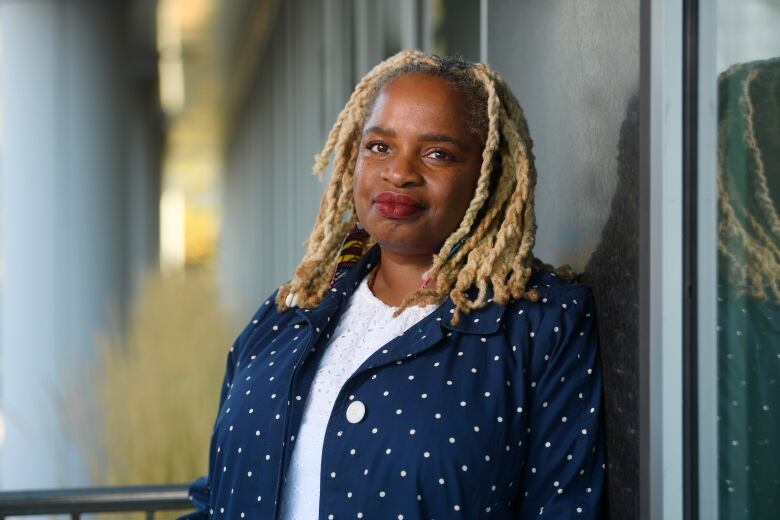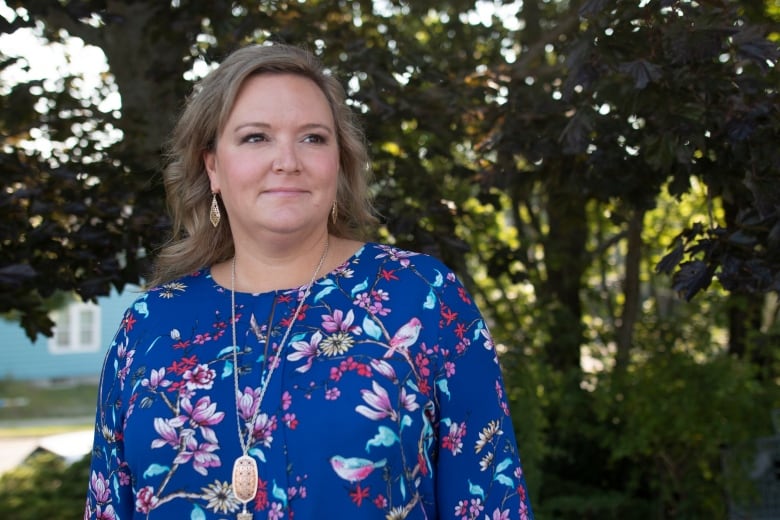Halifax doctor speaks out about racism on the job after patient demands white physician
Dr. Hayam Hamodat says the patient refused to be touched by her

A Halifax doctor is speaking out about the racism she faced recently from a patient who refused her care and demanded to be treated by a white physician.
Dr. Hayam Hamodat, an internal medicine resident, took to Twitter earlier this month to start a discussion about how the situation should have been handled. She's Muslim and wears a hijab.
Hamodat said as soon as she entered the examination room, the patient, who had recently been admitted to the hospital,seemed very unhappy with her.
He called her questions dumb and when she tried to examine him, he immediately grabbed at the blankets on the bed and wrapped them around him, Hamodat said.

"He said, 'I want a white physician. Don't touch me,'" she told CBC Radio's Information Morning.
"My first instinct was just [to] ignore the comment so I said, 'OK, I just have to listen to your heart and lungs. It won't be very long.' And then he repeated it again and said, 'No, I want a white physician. I want someone who is English.'"
Racism against health-care professionals is driving some to leave the province, according to the head of Doctors Nova Scotia, and there are calls for stronger measures to support doctors and hold patients accountable.
Hamodat said she appreciated the support she got from her team that day, but the patient also got what he wanted and was eventually treated by her white, male colleague.
"Our immediate approach was to make sure that the patient is taken care of, and I think that's what we first thought of," she said. "Ultimately, I think having discussions with patients and confronting them about it is really what's important."
No accountability for patients
While Black and Indigenous patients who question the care they're getting are often met with resistance, it's rarely the same for white patients, said OmiSoore Dryden, the James R. Johnston chair in Black Canadian studies in Dalhousie University's faculty of medicine.
"When white patients are acting out against doctors, the abundance of care is often given to the white patient that Black and Indigenous people don't experience," she said.
Dryden said even though many health-care settings have a zero tolerance policy on racism, there aren't actually any measures in place to hold patients accountable for what they do and say.
"Even though they're apatientin care and needing to receive care, they still need to be held accountable for their racism that's actually preventing them from getting the care that they need," she said.

Most people of colour who work in medicine face both blatant racism, like what Hamodat endured, and more subtle forms ofdiscrimination, said Dr. Aruna Dhara, a family doctor and assistant professor at Dalhousie University.
"I think institutionally there's actually not a huge amount that is available holding patients, holding society, holding kind of the larger system to account in terms of what we do about these kinds of instances," she said.
Dr. Andrew Warren, associate dean of postgraduate medical education at Dalhousie, said he was deeply upset to hear aboutHamodat's experience.
"Residents are encouraged to report and discuss any concerns with their work environment to Resident Affairs or the Postgraduate Medical Education office, where they will be supported," he said in an email to CBC News.
He said the university continues to introduce training for faculty and learners on how to respond to racism in the workplace, "and we are in constant contact with our health authority partners to address issues in the work environment."
Racism driving some doctors away
Dr. Robyn MacQuarrie, president of Doctors Nova Scotia, said the body doesn't have the power to apply consequences for patients, but that it's also trying to provide more education about what to do when a racist incident like this happens.
"Doctors Nova Scotia has a program to support doctors who feel under duress for any situation, and I would certainly feel that experiencing direct racism in the workplace is something they might reach out to the professional support program for," she said.

Asked if there are any culturally specific supports, MacQuarrie said Doctors Nova Scotia doesn't have a "specific pathway, but that would definitely be something we could accommodate and we have accommodated."
She said the racism Black, Indigenous and doctors of colour face in this province has led several of them to move away.
"It is, you know, to my mind, one of the issues that we have with recruitment and retention in this province, particularly in smaller communities, because when we don't have a diverse culture and an accepting culture for physicians, they're more likely to go somewhere in Canada where they won't experience such blatant racism."
Not an isolated incident
Hamodat said she's dealt with similar racism in the past, including a patient questioning if she'd be able to hear since she was wearing a hijab.
She was also asked by a colleague to take her hijab off when she entered the operating room because they claimed itwasn't sterile.
"I think in the past, I really haven't chatted with any of my colleagues about these situations often because I'm fearful that it will be perceived in a negative way," Hamodatsaid.
Shehopes opening up about these experiences will start a discussion about racism on the job.
"We don't have to put up with this," she said. "And we really have to be open and honestand confront patients as well and let them know that this is not something we would tolerate in a health-care setting."
With files from Samantha Schwientek and CBC Radio's Information Morning












_(720p).jpg)


 OFFICIAL HD MUSIC VIDEO.jpg)
.jpg)



























































































